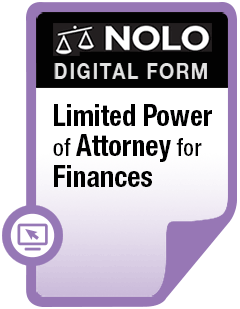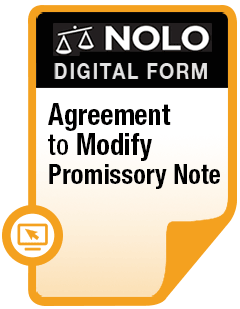Considering today's lawyer’s fees, prepaid services seem like a good idea—but are they?
Legal issues can come up without warning. One way to have legal assistance readily available is to pay for a prepaid legal services plan. These plans typically offer access to legal help for a fixed yearly or monthly fee.
But are prepaid legal services plans worth it? These plans have upsides and downsides and, in the end, using prepaid legal services might not save you much in legal fees.
- What Are Prepaid Legal Services Plans?
- What Does a Prepaid Legal Services Plan Cover?
- Are There Coverage Limits?
- Pros of Prepaid Legal Services
- Cons of Prepaid Legal Services
- Who Should and Should Not Consider Prepaid Legal Services?
- Alternatives to Prepaid Legal Services
- The Bottom Line on Prepaid Legal Services Plans
What Are Prepaid Legal Services Plans?
A "prepaid legal services plan" is a type of insurance plan that a number of different companies offer and market through employers, labor unions, credit unions, department stores, credit card companies, and even door-to-door. Under this kind of plan, you pay a set amount in exchange for access to legal help. There are typically no bills or retainers to pay, provided you use an attorney within the plan's network.
The theory is that legal services, kind of like nuts and berries, are cheaper when bought in bulk. A relatively low yearly or monthly fee purports to cover many lawyerly tasks.
What Does a Prepaid Legal Services Plan Cover?
The coverage under prepaid legal services plans varies, depending on the provider and the plan. Common covered areas include:
- consultations and advice on basic legal matters
- general document review and preparation
- representation in specific legal proceedings and matters, such as traffic violations, identity theft, and landlord/tenant disputes, and
- estate planning services, like preparing a simple will.
Be sure to carefully review the terms and conditions of any plan you're considering so you understand the extent of coverage and any limitations that apply.
Are There Coverage Limits?
Yes, prepaid legal services plans usually have coverage limits, which might include:
- a maximum number of attorney hours you can access
- some legal issues or cases are excluded from coverage
- limitations on which attorney you may use, perhaps based on geographic restrictions, and
- there might be a waiting period before you can use certain benefits.
These kinds of limitations and exclusions can affect your access to legal help so, again, be sure you understand the terms and conditions of any plan you're considering.
Pros of Prepaid Legal Services
Here are some reasons why enrolling in a plan could be beneficial.
Affordability and Predictable Costs
The main upside to a prepaid legal services plan is that you can include legal costs in your budget. By paying a fixed yearly or monthly fee, you know exactly how much you'll pay for legal services, perhaps making it easier to manage your finances.
Access to a Network of Attorneys
In most cases, prepaid legal plans have a pool of attorneys available to provide legal assistance. If you don't know how to find an attorney or how to go about hiring one, having an available network of lawyers available might make it easier to know where to go when a legal issue arises.
Preventive Legal Care
Prepaid legal services plans generally provide certain preventive legal services, such as document review for basic transactions and legal consultations on a variety of matters. By taking a preventative approach, you might be able to address a legal issue before it becomes a bigger problem, which can potentially save you time, money, and stress. Having a prepaid legal services plan can give you a sense of security about access to legal assistance.
Cons of Prepaid Legal Services
Prepaid legal services also have plenty of downsides.
Limited Coverage and Exclusions
The biggest downside is that prepaid legal services plans have limitations and exclusions. Most low-cost plans cover only a few phone or video consultations, brief office visits, and some uncomplicated services such as preparing a simple will or reviewing basic legal documents, like contracts and deeds.
However, many types of cases, such as divorce, bankruptcy, and criminal defense, aren't covered or are subject to specific conditions and restrictions. The prepaid legal services plan you have might not cover the legal issue you're facing. Some plans offer increased coverage of legal issues, but they're usually expensive.
Under a low-cost plan, you might get a discount for other types of legal services. Unfortunately, the resulting fee often isn't much lower than you could get if you shopped around on your own. Also, to avoid obvious conflicts of interest, the best plans don't allow the lawyers who provide consultations under the plan to refer cases to themselves.
Difficulty Finding the Right Lawyer
Even though you'll have access to a network of lawyers, finding a lawyer you're comfortable with and who can handle your legal issue might be a problem. It might take a while to find an attorney who can address your particular legal issue and whom you like. You might have to spend a significant amount of time looking for an appropriate lawyer.
Unused Benefits Can Be a Waste
If you don't have a legal problem while your prepaid legal services plan is active, the plan's benefits might go unused. These plans cost around $250-$300 annually. So, in that scenario, you've paid something for nothing, wasting hundreds of dollars. If you're considering a particular plan, look into whether the plan offers rollover benefits or other incentives to encourage its subscribers to use their benefits effectively.
Who Should and Should Not Consider Prepaid Legal Services?
A prepaid legal services plan might be suitable for you if:
- You frequently need basic legal help or think you'll need legal help on relatively simple matters.
- You prefer to have predictable legal costs (even if they might not cover everything you need).
- You like having legal help readily available and are willing to deal with the downsides of this kind of plan.
If you decide to sign up for a prepaid legal services plan, don't pay for it until you know exactly what the plan covers and what you'll have to pay on your own. Also, ask whether the plan's consultation lawyers are allowed to recommend their own services. If so, you're at risk of buying into a bait-and-switch scheme.
Also, when contemplating whether to sign up for such a plan, think about how likely it is that you'll need one of the covered services—and consider how many of these tasks, like writing a will or filing for divorce, you can do on your own with a little help from a service such as Nolo or by hiring an attorney.
You probably don't need a prepaid legal services plan if you:
- rarely need legal help
- need a specific type of legal assistance that most plans don't cover, or
- you'd rather be able to choose any attorney you want rather than be limited to a specific network of lawyers.
Because most people use a lawyer only a few times in their lives, a prepaid legal services plan might be insurance you can do without.
Alternatives to Prepaid Legal Services
Some alternatives to prepaid legal services plans to consider include the following:
- Hiring a lawyer the traditional way. You can hire an attorney on an as-needed basis. Consider asking friends, family members, coworkers, and other attorneys for referrals. You can also try to find a suitable lawyer using an online directory or by going through your local or state bar association. This option gives you greater flexibility and control over choosing an attorney.
- Pay for online legal services. Some online platforms provide affordable legal services, including document preparation, legal advice, and representation, similar to those you could get from a prepaid legal services plan. But you pay for the services on an as-needed basis.
- Look into legal aid organizations. You might qualify for free or low-cost legal assistance from a legal aid society. Most states have legal aid programs for low-income individuals who need assistance. You can find a list of various legal aid programs near you on the Legal Service Corporation's website.
The Bottom Line on Prepaid Legal Services Plans
Signing up for a prepaid legal services plan could be a cost-effective way to get access to legal help. But whether it's worth paying for a plan depends on your individual circumstances and preferences.
For most people, considering how rarely legal issues arise and that many life events require more assistance than most plans provide, prepaid legal services aren't necessary. You'll probably be better off consulting a lawyer when a legal issue comes up rather than paying for an ongoing service.
Talk to a Lawyer
Need a lawyer? Start here.
How it Works
- Briefly tell us about your case
- Provide your contact information
- Choose attorneys to contact you
- What Are Prepaid Legal Services Plans?
- What Does a Prepaid Legal Services Plan Cover?
- Are There Coverage Limits?
- Pros of Prepaid Legal Services
- Cons of Prepaid Legal Services
- Who Should and Should Not Consider Prepaid Legal Services?
- Alternatives to Prepaid Legal Services
- The Bottom Line on Prepaid Legal Services Plans
- Briefly tell us about your case
- Provide your contact information
- Choose attorneys to contact you



